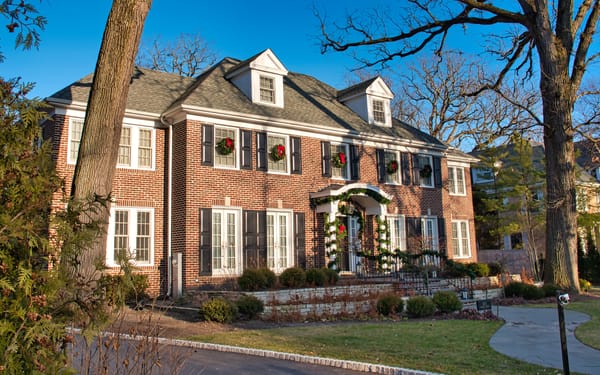Top 5 Airbnb Risks All Airbnb Hosts Face (and How to Deal With Them)

As a host, you’re well aware of the fact that there are some Airbnb risks that come along with renting your property to strangers.
While there are risks that are certainly manageable, it’s important that you know exactly what you’re facing so that you can mitigate them successfully.
Here are the biggest Airbnb risks that Airbnb hosts face in using the platform to run a vacation rental business.

1. Liability Risks and Insurance Coverage
When you rent to Airbnb guests, you are essentially allowing strangers to stay on your property. While you might feel that you’ve built up some rapport during your pre-check-in conversations, you simply have no idea how things will really turn out until the guests arrive.
Liability as a result of your guest’s actions or incidents, while the guest is on your property, is just one of the major Airbnb risks that the host simply has to find ways to mitigate.
A guest may get injured, damage your property or even cause injury to your neighbors. As the owner of the property, you’ll be on the hook to pay for the damages and medical bills.
Instead of hoping that you can weasel your way out of a civil lawsuit or medical bills, make sure that you have the proper Airbnb liability insurance coverage necessary in place before you ever list your property on Airbnb.
Not only will having full insurance coverage and the right insurance policy will help to minimize your out-of-pocket expenses, but it can also shield you from personal liability.

How to Mitigate Liability Risks
- Get the Right Insurance: Make sure you’ve got solid liability insurance tailored for short-term rentals. Your insurance policy needs to cover things like guest injuries or property damage. Do some research and find an insurance company that has packages for short-term rental properties.
- Screen Your Guests: Check guest reviews, consider pre-booking chats, and use screening tools to get a feel for guests before confirming bookings. Clear house rules also go a long way in avoiding any misunderstandings or issues.
A Note on Privacy Matters
Keeping your guests’ privacy intact is super important as an Airbnb host, and messing it up can lead to big problems.
You’ve got to find the right balance between personal safety and respecting your and potential guests’ privacy—especially when it comes to security cameras and other surveillance tools. For instance, Airbnb lets you have cameras, but only in shared spaces like entrances, and you need to make that clear in your listing. Hidden cameras will jeopardize your Airbnb account.
Data privacy is a big deal, too. Since you have access to sensitive guest info, it’s essential to handle that data carefully and securely to make sure it doesn’t get misused or fall into the wrong hands.

2. Every Airbnb Host Risks Renting to Squatters
Renting to squatters is one of the Airbnb risks that all hosts worry about, no matter how many properties they have in their portfolios.
In certain cities, squatters can exercise their rights to stay on your property as tenants in just a few weeks and they’re often pretty difficult to get rid of.
Unsuspecting hosts who end up renting to squatters are then tasked with lengthy eviction processes that could end up costing them thousands in legal fees.
In the meantime, the hosts also lose out on opportunities to rent to new Airbnb guests. Squatters also often cause property damage, which also means that the Airbnb host will also be on the hook for those costs as well.
In order to avoid renting to squatters, hosts should try to avoid long-term rentals where the line Relationships between short-term rental guest and tenant become murky unless there is a rental agreement in place.
Airbnb hosts should also be on the lookout for guests who don’t have a clear departure date or want to renegotiate checkout dates after they’ve already arrived.
How to Mitigate the Risk of Squatters
- Keep Stays Short: Stick to shorter rental periods to avoid guests overstaying and claiming tenant rights, which can kick in after a certain time in some places.
- Set Clear Check-Out Expectations: Make sure check-out dates are confirmed and avoid last-minute extensions. For longer stays, having guests sign an agreement can help clarify the rules.
- Watch for Red Flags: Be wary of guests with unclear departure plans or those asking to extend their stay once they’re in—they could be potential squatters.
3. Changing Regulatory Environments for Rental Properties
One of the greatest Airbnb risks that all Airbnb hosts face is an ever-changing regulatory environment. In response to the rising popularity of Airbnb, many cities around the world are looking to place greater restrictions on short-term property rentals by enacting new zoning regulations and rental laws.
As a result, there could come a time where vacation rental services like Airbnb are prohibited altogether in your area. Furthermore, even if Airbnb isn’t banned, governments can end up making the cost of compliance so high that it becomes nearly impossible for you to make healthy profits from your business.
To avoid the risk of running an illegal Airbnb business or being pushed out of the market, it’s important for all Airbnb hosts to stay on top on regulatory updates that affect short-term vacation rentals and the hotel industry.
Hosts should never rely on Airbnb directly to provide them with this information because once the information becomes available via Airbnb it is likely too late to mitigate the damage to your business.
By becoming more active in your local government, you’ll have the opportunity to share your opinion or vote on issues that affect you as a property owner before new proposals become law.
How to Mitigate Regulatory Risk
- Keep Up with the Rules: Stay in the loop by checking local government sites, short-term rental groups, and industry news. Joining local host groups is also a good way to keep up with any changes.
- Get Involved: Go to city council meetings or community talks on short-term rental laws. Sharing your perspective as a host can help create fair rules for everyone.
- Be Ready for Changes: Have a backup plan in case new rules limit short-term rentals in your area—like switching to a long-term rental if you need to.

4. Unavoidable Rental Property Risk: Canceled Bookings
As an Airbnb host, you know that Airbnb has the final say when it comes to booking cancellations. If an Airbnb guest complains, Airbnb may decide to cancel their booking, even after the check-in date has passed, and return all of the money to the guest.
This can happen regardless of the Airbnb cancellation policy that you’ve provided in your listing. In addition, Airbnb doesn’t even have to contact you first to discuss the cancellation.
Airbnb may also decide to stop payment on a booking even after the guest has already checked out. You also won’t get reimbursed for money that you’ve already shelled out in order to provide the guest with the agreed-upon accommodations and amenities during their stay.
While canceled bookings like this are generally rare, you should expect that you could lose money on a booking at some point. Therefore, you must account for unforeseen cancellations that result in lost revenue as a part of your Airbnb management strategy so that you don’t end up going into the red.
How to Mitigate Canceled Bookings
- Mix Up Your Booking Options: Try listing on a few different platforms or set up a direct booking website to rely less on Airbnb’s cancellation policies.
- Create a Cancellation Safety Net: Set aside some funds to cover unexpected losses from canceled bookings—this way, you’ll keep things steady even if cancellations happen.
- Have Clear House Rules: Make sure your house rules are straightforward, especially around guest behavior, to avoid cancellations over complaints or rule-breaking.
5. Airbnb’s Negative Impact on Property Values
In areas where Airbnb usage is high, Airbnb may actually have an impact on the overall value of properties in that market.
For properties where most of the units are rented out on Airbnb, Airbnb may actually adversely affect the value of rental property.
Some opponents of Airbnb argue that Airbnb harms the community aspect of living in a neighborhood because transient short-term tenants do not maintain properties as well as local residents. It’s also a given that in a building where Airbnb is permitted, security might be lax in order for owners to accommodate traveling guests.
Unfortunately, real estate prices in your market might just start to reflect these negative assumptions, driving the price of your property lower.
While this doesn’t always happen, the potential for lower property values is one of the Airbnb risks that hosts should know about if they plan to buy and sell rental properties or to grow their Airbnb businesses.
How to Mitigate the Negative Impact on the Neighborhood
- Keep Things Friendly with Neighbors: Stay on top of noise, parking, and property maintenance to tackle any concerns your neighbors might have. This can help keep Airbnb rentals viewed positively in the neighborhood.
- Boost Property Security: Add security features like cameras, smart locks, and visitor tracking to ease any worries your neighbors might have about safety.
- Watch the Market: If you’re thinking about buying or selling, check out market trends to see how Airbnb activity is affecting property values in your area. This will help you make smart investment choices.

Final Thoughts
Hosting on Airbnb can be a bit overwhelming, but if you take a proactive approach, you can tackle a lot of these challenges or even avoid them entirely. Just remember, every business has its risks, but managing them well is the key.
If you’re looking to make things easier and better handle these challenges, iGMS has great property management software that can simplify your daily tasks and give you peace of mind.






